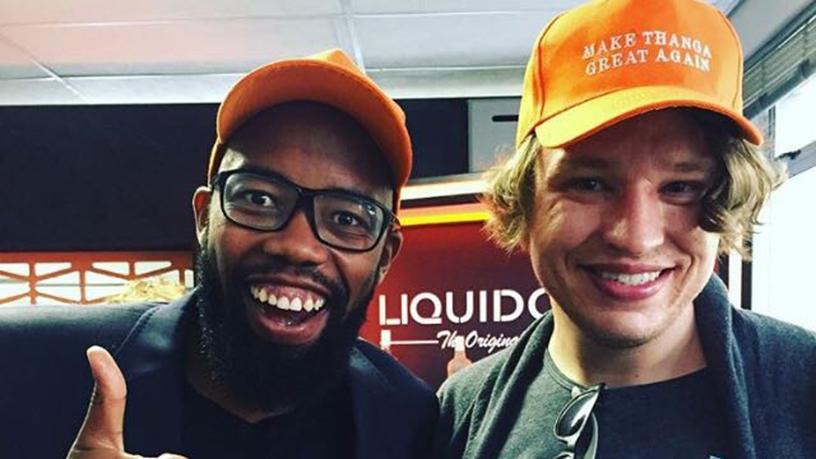
Local start-up Thanga is using artificial intelligence (AI) to learn and eventually automate the menial tasks hundreds of social media managers in various industries currently contend with.
Founded by entrepreneurs Roy Mathieu Borole, previously of courier and fleet management start-up Wumdrop, and data scientist Ryan Dick, the company has been in operation since April last year.
Thanga signed its first major contract by July and now works with the likes of Cambridge Foods, Massmart and Save the Children, and a telecommunications company. It is also in talks with players in the banking sector.
Thanga is an AI studio that first gives its customers access to data science skills to better understand their engagement on social media and be able to use that data to better engage with their social media managers.
The company takes into account customer interactions on Facebook, Twitter, Instagram and anywhere on the open Web where comments or reviews can be made, such as Hello Peter or News24.
Secondly, Thanga puts an AI process in place that learns over time what social media managers are doing and how they are interacting on the platform, so in time it can replace them completely.
This process is already in beta phase with two major clients.
Borole says the Thanga system could take anywhere from six to 12 weeks to learn how to respond like a social media manager would do in any company; it just depends on the size and complexity of the problems.
"For example, if you are a straightforward brand, like an alcohol or car brand, there are a finite number of questions customers could be querying online and the system will learn these very quickly.
"However, it gets more complicated with companies in industries like telecommunications which have hundreds of products and each product can have multiple issues. The system would have to identify the product first and then cycle through all the possible problems, which takes time to learn but is not impossible."
The name Thanga comes from the Zulu homonym, where 'thanga' means both pumpkin and thigh in Zulu. Borole says in 2002 soccer player Siyabonga Nomvete scored a famous goal using his thigh, but in the interview afterwards said in English that he used his pumpkin to get the ball into the net.
"For Zulu speakers this was hilarious but had to be explained to English speakers, and this word came to represent the common misunderstandings that happen daily in South Africa.
"So Thanga, as in the AI company, represents our customers' data - everyone has a different understanding of it and you may not see it from all angles; we make it clear for you and then help you score the goal."
It's not man against machine
Borole says the idea is not to remove people completely from the equation, just to cut down drastically. For the more complicated companies, there would still be a small highly-knowledgeable and trustworthy team, that customers would be referred to if the system could not help them, and this team would have the power to override systems.
He says the future is going to be man working together with machine, because: "If you don't have human intervention, things can quickly turn into a nightmare, and do often."
He gave the example of three systems talking to you and each other ? sales, repairs and accounts. "It is possible to get stuck in an infinite loop between these systems, as you are automatically passed from one to the other because of pre-programmed processes that don't allow for your unique situation, which could be that you don't have a receipt but need something repaired.
"Automation is a good thing, but the problem for me is when they get to the point where they are infallible, because at that point, humans can't undo the problem.
"You therefore find yourself in a place where your problem is almost impossible to overcome because when you eventually get through to a human they are secondary to the system."
The smaller, more trustworthy team would have access to tools that can override certain processes and solve the customer's problems.
Borole says it is interesting that there are already processes in places to automate jobs that have not existed for that long. He believes this trend will continue.
"The only terrifying thing about AI is that when it is really, really good, we don't know it is there, it is invisible.
"And the things we do worry about, like self-driving cars or robots in factories, those are not scary, those are obvious developments. The concern is the things we can't see, small things that are automated on a large scale."
Share